Graham Reid | | 4 min read
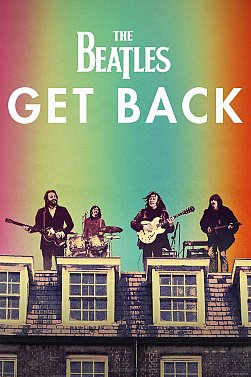
When George Harrison quit the Beatles on January 10, 1969 it was surprisingly undramatic: “I'm leaving . . .”
John Lennon stops playing guitar: “What?”
“The band, now,” says Harrison, although adding waspishly on the way out the door later, “see you 'round the clubs”.
That night he wrote in his diary, “Got up went to Twickenham rehearsed until lunch time – left the Beatles – went home and in the evening [produced the single by Brute Force] King of Fuh at Trident Studio – had chips later at Klaus and Christines, went home.”
Harrison had recently returned from upstate New York staying with Bob Dylan and the Band where the convivial, relaxed atmosphere contrasted with the fraught dynamic within the Beatles.
That had been thrown into sharp relief when, on January 2, the group had reconvened in a cavernous, cold film studio in Twickenham with “Happy New Year” greetings.
It proved not to be.
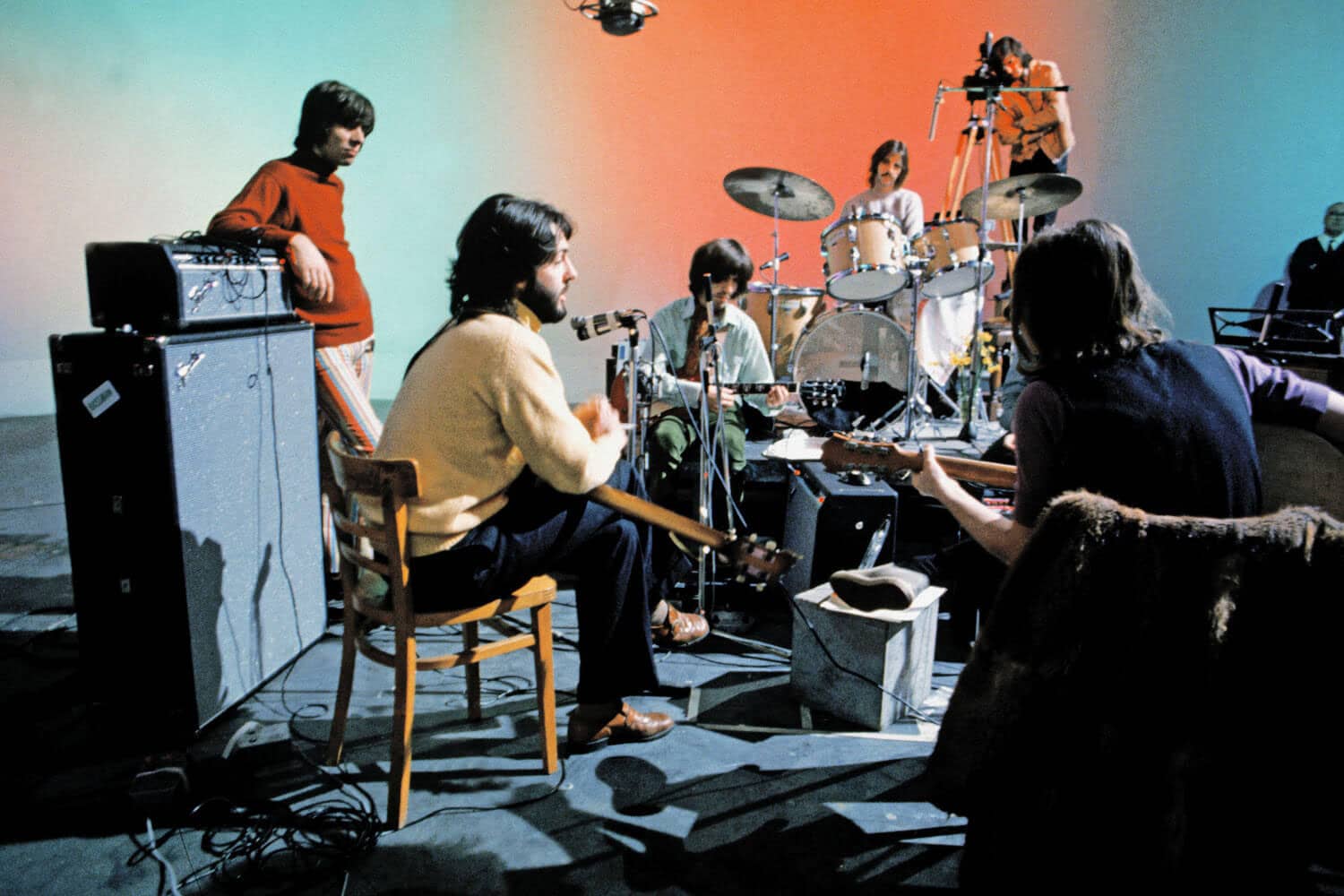 Paul McCartney – corralling them for a new project, as he'd done with the shapeless Magical Mystery Tour television feature in late 67 – suggested they be filmed in cinéma vérité style (he'd seen a documentary of Picasso at work) as they rehearsed new songs then, at some yet-to-be-determined location, they would play and record them in their entirety for release as an album.
Paul McCartney – corralling them for a new project, as he'd done with the shapeless Magical Mystery Tour television feature in late 67 – suggested they be filmed in cinéma vérité style (he'd seen a documentary of Picasso at work) as they rehearsed new songs then, at some yet-to-be-determined location, they would play and record them in their entirety for release as an album.
The January chill, boredom, 10am starts and the paucity of workable material made for a tetchy atmosphere as McCartney cajoled and pushed.
Then Harrison, whose songs had been praised by Dylan but rejected by his own band, walked.
After numerous meetings with – Harrison insisting the concert in some exotic location, as had been discussed, be dropped and they find a more comfortable studio space – he returned on January 21 when the band and film crew set up at the smaller Apple studio in Savile Row.
And the sessions, increasingly focused because of a self-imposed deadline, continued until January 30 when they played their final concert on Apple's roof and what Harrison called “the winter of discontent” came to a close.
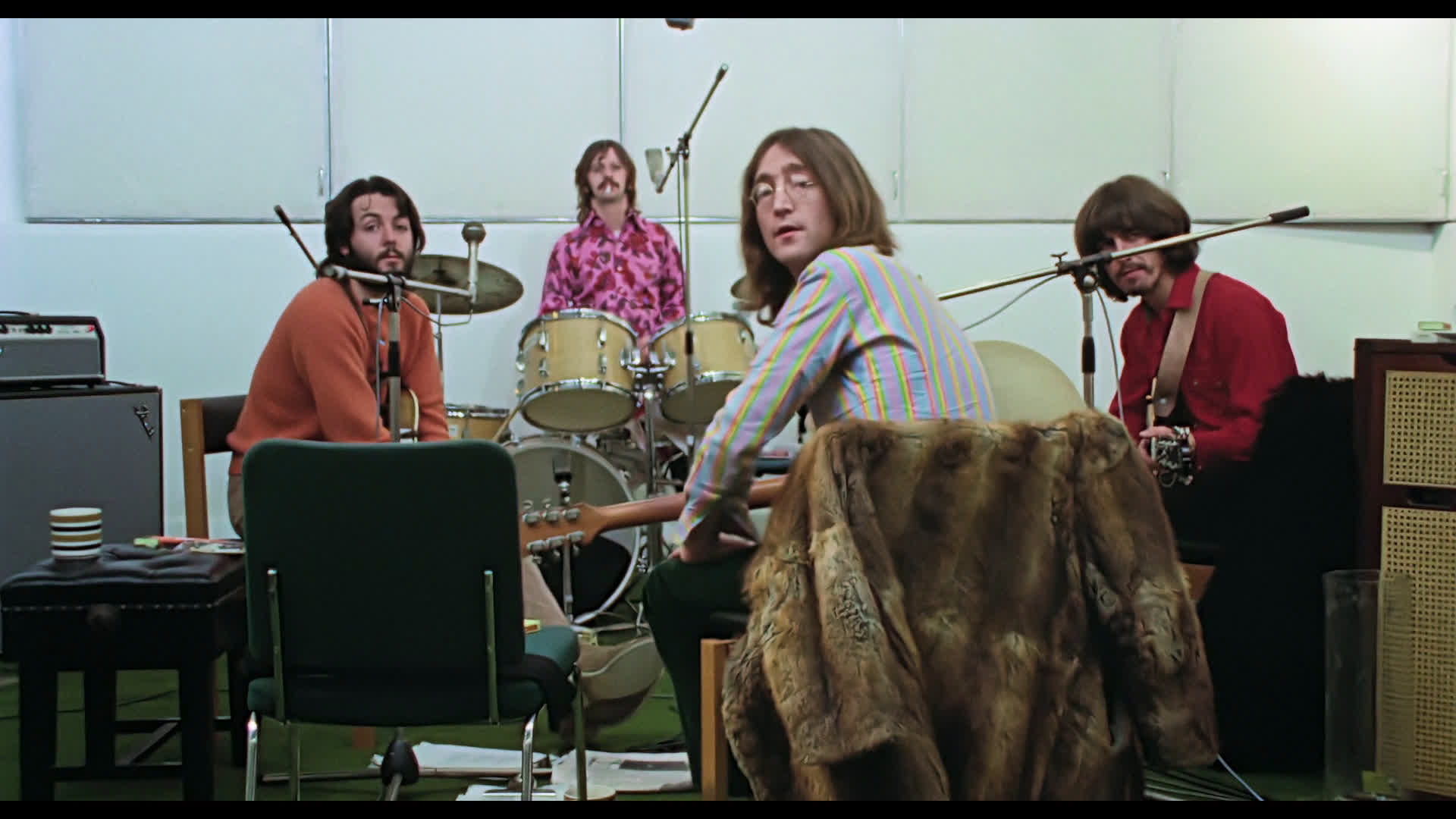 But all that time the cameras had rolled, capturing the tedium, distractions, laughter and mesmerising moments, as when head-to-head Lennon and McCartney sang Two of Us into one microphone or joyfully rocked through One After 909 written by Lennon when he was a teenager.
But all that time the cameras had rolled, capturing the tedium, distractions, laughter and mesmerising moments, as when head-to-head Lennon and McCartney sang Two of Us into one microphone or joyfully rocked through One After 909 written by Lennon when he was a teenager.
By the time the Let It Be film appeared briefly in cinemas the following year the group had broken up and it seemed to show the Beatles pulling apart.
Yet they didn't.
After shoving the recordings to producer Phil Spector to create an album out of them, they regrouped for the polished Abbey Road (produced by George Martin) released in September 69.
Let It Be wasn't the end, but the delayed release of the film/album meant it became the tarnished coda to a glittering career.
In April 1970 when the band has broken up McCartney released with his self-titled solo album and accompanying it was self-designed Q&A with himself.
“Will the Beatles ever work together again?”
His answer: “I do not foresee a time when the Lennon & McCartney partnership will be active again in song writing.”
In December on his Plastic Ono Band album Lennon announced “I don't believe in Beatles . . . . so dear friends you'll just have to carry on, the dream is over”.
It was.
They wouldn't see each other 'round the clubs.
There would be no reconciliation this time.
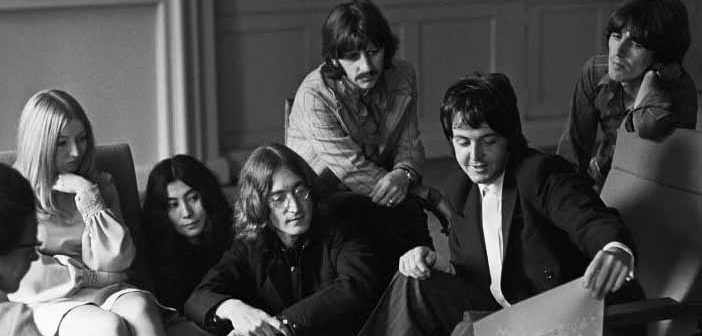 The seldom-seen Let It Be hasn't been on DVD, however now – with the re-release of the album and the Get Back book of selected transcripts from the sessions – the spotlight again falls on this period.
The seldom-seen Let It Be hasn't been on DVD, however now – with the re-release of the album and the Get Back book of selected transcripts from the sessions – the spotlight again falls on this period.
There have been regular Beatles reissues (Sgt. Pepper, “The White Album” and Abbey Road, not to mention the ongoing McCartney reissue of his albums, Harrison's recent solo All Things Must Pass and various Lennon box sets) but this one, a tarnished coda to a glittering career, comes with an added attraction, Peter Jackson's three part/six hour documentary Get Back using material from the 56 hours of footage shot by Michael Lindsey-Hogg and his crew.
Jackson notes there was more camaraderie than the Let It Be film allowed, confirmed by teaser footage and the Get Back transcripts.
When making music together they were a very good rock'n'roll band and four of the 12 songs on the subsequent Spector-produced Let It Be album were taken from their rooftop performance.
And if they were sometimes disinterested, especially in Twickenham, the Beatles could deliver under pressure.
Despite lengthy discussions about where to film the concert and the hiatus imposed by Harrison's absence, they pulled together nine diverse new songs – among them Two of Us, Let It Be, Across the Universe, The Long and Winding Road and Get Back-- in just 20 working days after “Happy New Year”.
The box sets of the Let It Be album – outtakes, banter, rehearsals of songs which appeared on subsequent solo albums -- don't prompt any great reconsideration of this music, other than revealing their working method and the pleasure they took being a tight, unadorned rock'n'roll band.
However Jackson's digitally-enhanced Get Back illuminates a different perspective, Ringo and McCartney saying it corrects the skewed Let It Be film, which Lindsay-Hogg still defends.
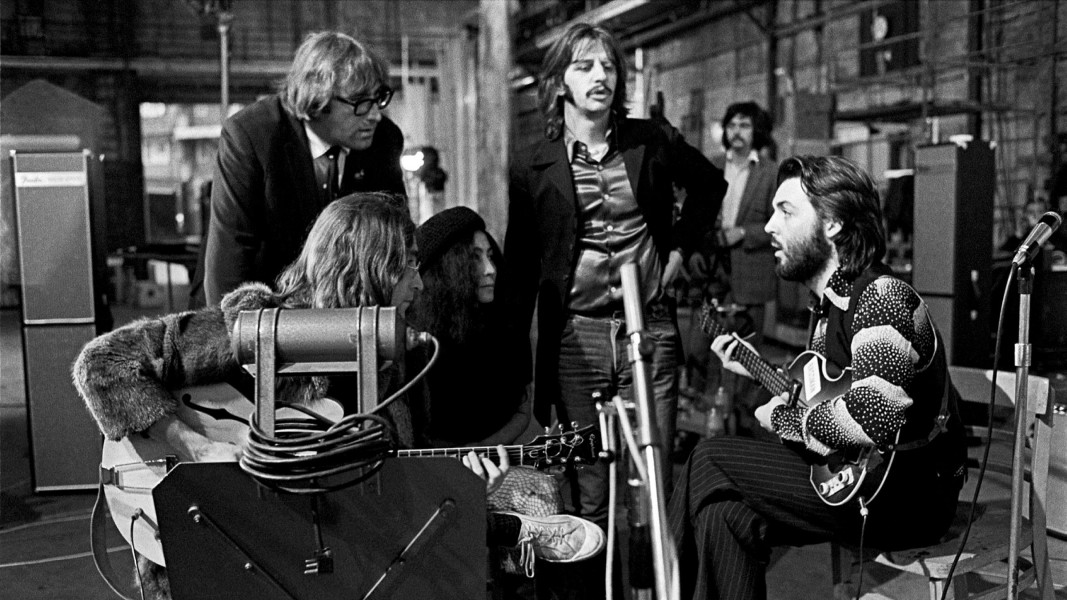 “It shows the wonderful times we had together,” says McCartney, “and it is how I want to remember the Beatles.”
“It shows the wonderful times we had together,” says McCartney, “and it is how I want to remember the Beatles.”
With Get Back, McCartney perhaps has the film he envisioned 52 years ago.
It's rare a band – let alone the world's biggest – would permit such unfettered access by a camera crew, drawing back the curtain which usually veils creativity.
Jackson's “documentary about a documentary” is reality television with a more captivating cast and a better soundtrack.
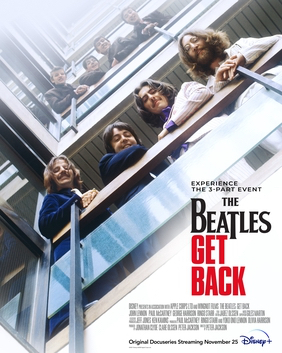 And to see how Yoko Ono, often effectively mute but ever-present by Lennon's side, comes out.
And to see how Yoko Ono, often effectively mute but ever-present by Lennon's side, comes out.
On behalf of Lennon's estate she had sign off too.
.
The expanded Let It Be album comes in various formats (vinyl, CD, reviewed at Elsewhere here) and is available on streaming platforms.
.
Peter Jackson's The Beatles:Get Back documentary series screens on Disney + on November 25, 26 and 27
.
.

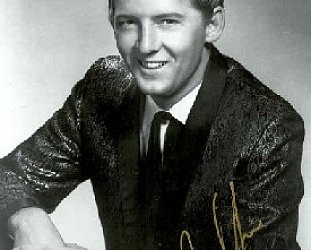
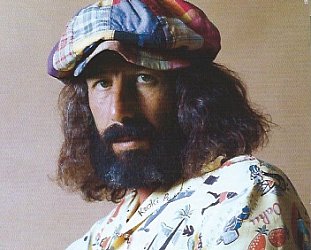
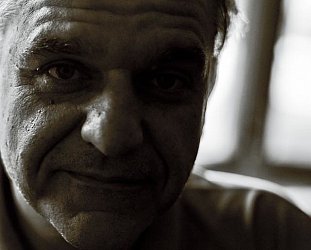
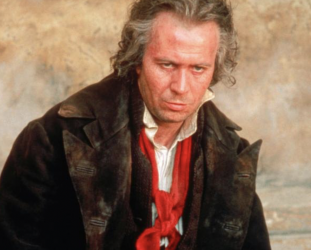
post a comment